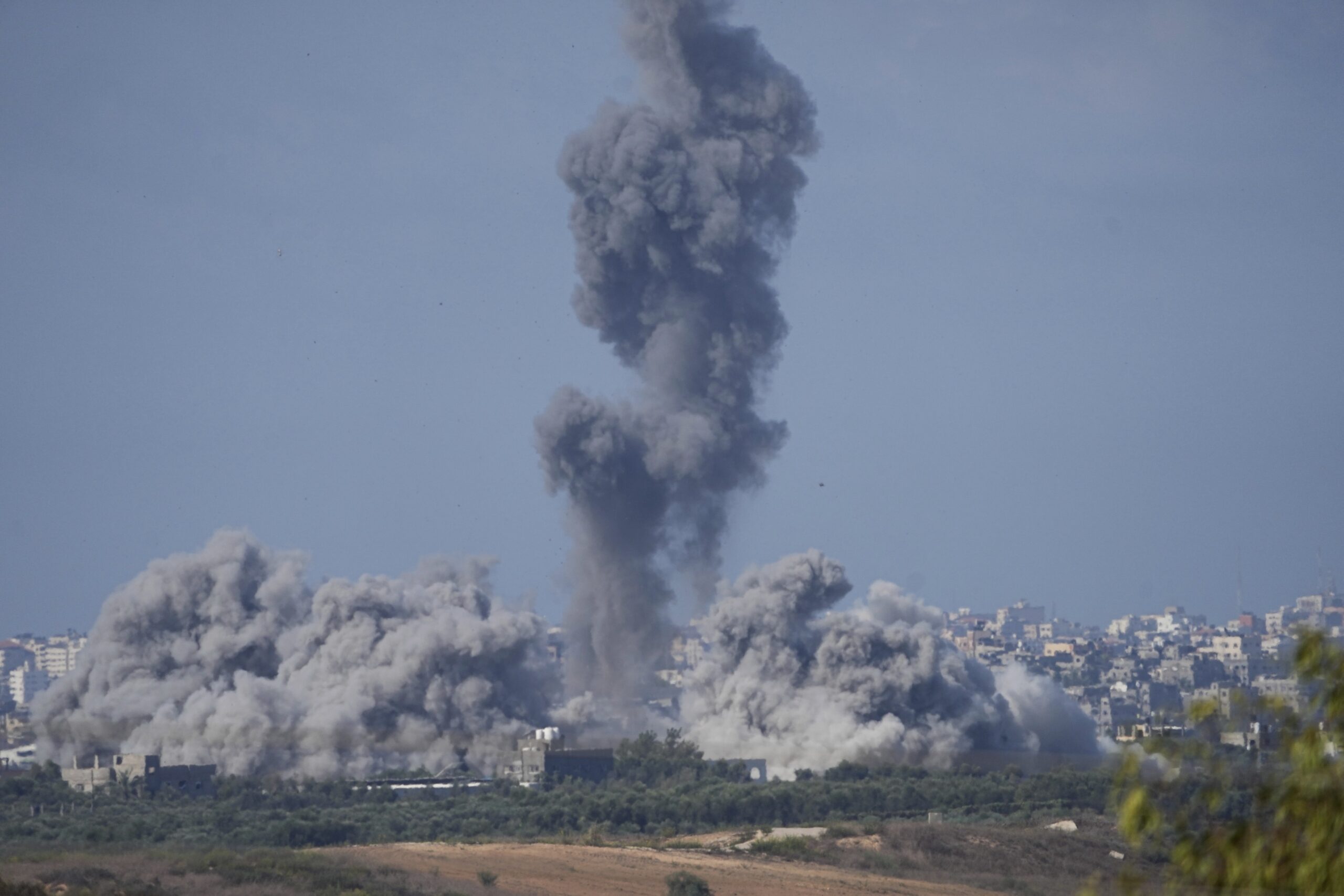


While Israel-Hamas conflict does not seem to be ending any sooner, global affairs observed significant developments impacting overall world politics. While the nations are busy in resolving (?) Israel-Hamas conflict, India and the US started its fifth 2+2 dialogue in New Delhi to discuss prioritised strategic issues and opportunities. This 2+2 dialogue, involving External Affairs and Defence ministers from both the sides, is considered noteworthy for the entire world. Timing of this dialogue is even more important as Israel and Hamas have disrupted the momentum of their regional as well as global politics. Apart from multi-faced repercussions of the ongoing conflict between Israel and Hamas belonging to political, economic, and social realms, this conflict has daunted many ongoing efforts to normalise relations between the nations like Turkey and Israel. The echo of the consequences would definitely last long. A debate over terrorist organisations governing a state is also going on. It is a pertinent question to be debated – Can a terrorist organisation run a state? When Taliban took over the government of Afghanistan by the tip of its sword in 2021, Pakistan supported Taliban and recognised its government. This week, Pakistan announced tacking back its ‘special privileges’ given to the Taliban government in Afghanistan. On the other hand, Pakistan’s all-weather friend China is also facing a major economic setback, leaving its allies in dismay.
CHINA’S ECONOMIC SETBACK: INDIA’S RESILIENCE ALTERS GLOBAL DYNAMICS
Despite taking multiple painstaking measures, Xi could not save China from facing a severe economic setback and debt crisis. However, India is registering a steady economic growth between 6-7 percent every year and is offering a trusted partnership to many likeminded nations. China always created hurdles for India at various international platforms to rise, including UNSC. India is now giving a befitting reply to China’s manoeuvrings by successfully promoting ‘Atmnirbhar Bharat’. India’s ‘Vocal for Local’ and ‘Make in India’ programs encouraged Indian manufacturers while discouraging Chinese dump in to Indian markets. On the other hand, Indian government also denied investments of Chinese firms in past few years, made the regulations more stringent, actively looking for the alternative nations to replace Chinese imports and collaborating with other likeminded nations. All these economic measures not only helped in containing Chinese feet into India, they also boosted Indian manufacturing and collaborations with the other nations. Indian buyers are also realising the significance of rejecting Chinese goods, and are contributing to promote Indian economy. Hope China understands it cannot survive if it is left all alone by rest of the world.
PAKISTAN’S SHIFT: WITHDRAWAL OF TALIBAN SUPPORT RAISES CONCERNS
Like China, Pakistan is also going through tough times. Apart from facing severe political and economic crises, Pakistan’s decision this week to take back its support from Taliban has left the world in disbelief. After Taliban took over the government of Afghanistan in August 2021, Pakistan came up as its main ally who kept forcing the international community to acknowledge and support Taliban. Pakistan also provided some special economic and trade related privileges to Taliban. When the entire world cautioned Pakistan to not support a terrorist organisation, it overlooked the advice and kept promoting Taliban. But after facing continuous brunt from Tehreek-e-Taliban Pakistan (TTP) terror group, a Pakistani version of Afghani Taliban, Pakistan has now taken this decision. TTP wants to declare Pakistan as an Islamic state and impose its strict brand of Islam in Pakistan, which is unacceptable to Pakistani government. When Pakistan realised that Taliban has miserably failed (did it even try?) in neutralising TTP, it took the decision of stopping its any further support to Taliban. Hope this does not open another theatre of violent conflict in Asia.
Conflicts can be resolved only through dialogues. India understands this well. This week, the famous 2+2 dialogue between India and the US started in New Delhi. This is the fifth ministerial dialogue among the Indian Defence Minister, Shri Rajnath Singh and Minister of External Affairs, Dr. S. Jaishankar with the US Secretary of State, Antony J. Blinken and Secretary of Defence, Lloyd J. Austin III. India and the US are already engaged incredibly in various strategic areas presently, and this dialogue enables new engagements apart from reviewing ongoing engagements between the two nations in the domains of defence and security, science and technology, and people-to-people connects. The dialogue also involves topics related to contemporary geo-political issues, challenges and opportunities, and enables the minsters to find avenues to cooperate and collaborate bilaterally as well as multilaterally. This dialogue is a significant instrument of the overall global strategic partnership between India and the US.
Though conflicts are a reality, we must not forget that peace is a reality too. How it is achieved matters the most. Military alliances like NATO are a realist concept, all about using hard power. But at the core of such alliances breathes the liberal concept of collective security. Collective is the word, to grow and live peacefully. Hope the leaders realise it too.
(The author is Professor, School of International Studies, JNU)